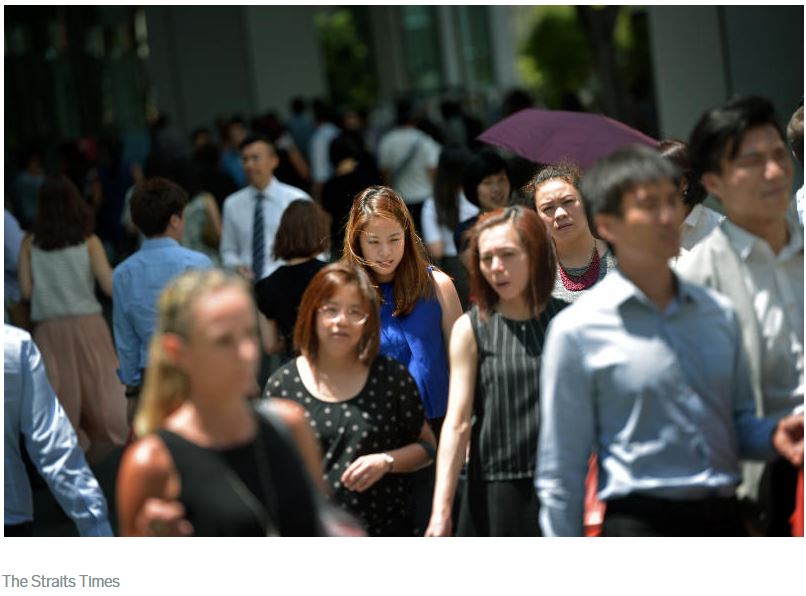Women in Singapore earned 87.5% of what men earned in 2018 – the largest gender wage gap in 10 years
Singapore’s gender wage gap widened in 2018, as the median wage for women working full-time fell to 87.5 per cent of the median wage for men – its lowest in the past decade, a report by ValueChampion published on Thursday (Feb 28) has found.
In 2017, the median wage for women working full-time was 90.8 per cent of the median wage for men, said the report, which is based on data from the Ministry of Manpower and “other publicly available sources”.
The top three industries with the widest wage gaps were – in order – health and social services with a S$2,340 difference in median wage, financial and insurance services with a S$1,490 difference, and information and communications with a S$1,365 difference.

The report also said that some of the industries with the largest wage gaps were also the highest paying ones, “which suggests that women are less likely to have some of the highest paying roles in the country”.
ValueChampion said:”Women make up 77 per cent of the health and social services workforce, but represent only 51 per cent of employees in that industry that earn at least S$7,000 monthly.”
“Meanwhile, women represent 85 per cent of the employees earning less than S$2,000 per month,” the report added.
The industry with the smallest wage gap was arts, entertainment and recreation, where women’s median wage was S$126 less than men’s.
There were also some industries in which women earned more than men – namely transport and storage, administrative and support services, and “others”.
Among these three categories, transport and storage had the biggest difference, with the median wage for women being S$803 more than men.

“However, it is worth noting that women make up just 24 per cent of the transportation and storage and 26 per cent of the construction workforces. This suggests that the impact of this wage advantage in these industries may be somewhat limited for women in Singapore,” the report said.
Causes of Singapore’s gender wage gap
The report suggested that the overall gender wage gap could be due to occupational differences – women were more likely to work in service, education and care-related roles. For instance, 91 per cent of personal care workers were female the report said.
And men, were more likely to be employed in engineering and technical roles, which typically paid high wages, according to the report. For example, only 26 per cent of engineering professionals were female.
In addition, women in Singapore worked 5 per cent less, in terms of hours, than men. Working longer hours may help in career advancement, eventually leading up to higher pay, according to the report.
Despite the gap in working hours, it doesn’t mean women don’t work as hard as men – according to the report, this was likely not the case at all.
The report said: “Women tend to spend more time on housework compared to men. In turn, this can mean that women end up working fewer hours at their job due to taking care of household chores and childcare, burdens that are not typically borne by men.”
More representation and higher education
Apart from the widened gender wage gap, the report also picked out some positive trends in three areas: board representation, higher education and part-time workers.
The proportion of board seats held by women in Singapore jumped from 7.5 per cent in 2013 to 15.2 per cent last year. Also, the number of all-male boards in the top 100 listed companies in Singapore dropped from 50 per cent in 2013 to 25 per cent last year.
From 2008 to 2018, the proportion of women with a university degree in Singapore increased from 26 per cent to 38 per cent, while the proportion of women with less than a secondary education decreased from 21 per cent to 15 per cent.
Also, median wage for part-time, female workers was S$1,023 in 2018, which was 94 per cent of the median wage received by men, and a significant improvement from 86 per cent in 2008.
Source: https://www.businessinsider.sg/women-in-singapore-earned-87-5-of-what-men-earned-in-2018-the-largest-gender-wage-gap-in-10-years/


 Thailand
Thailand




